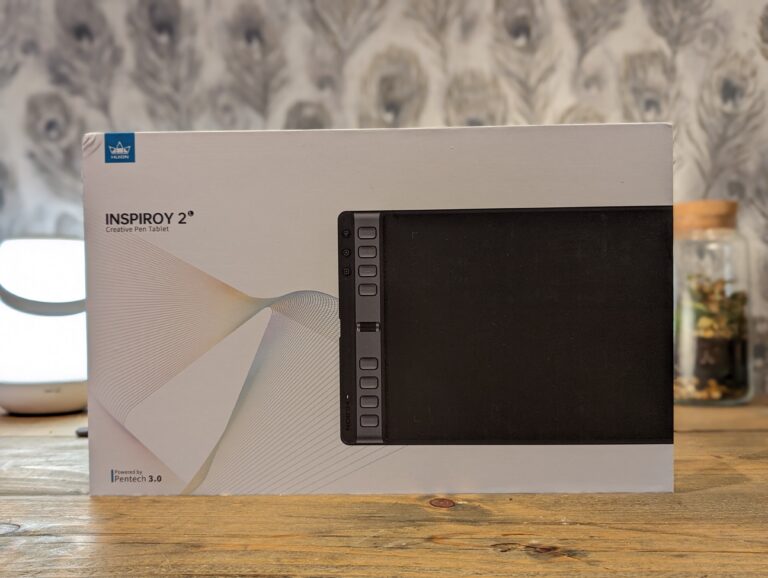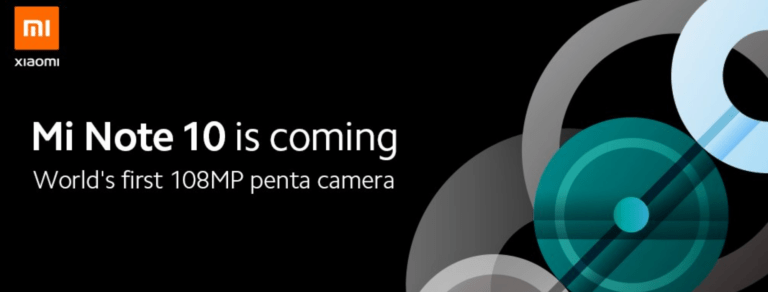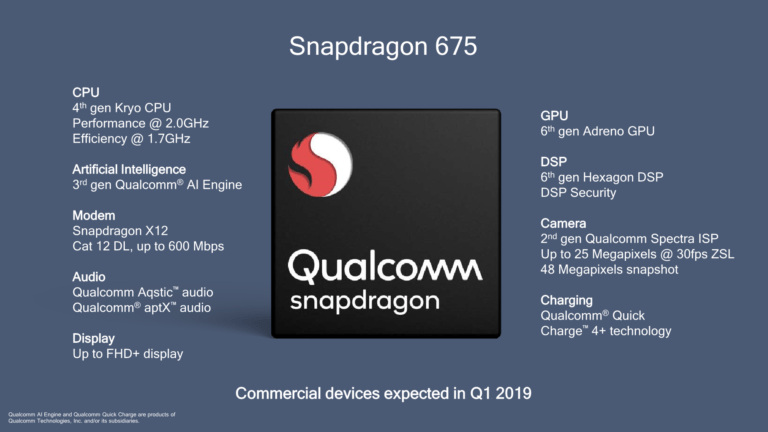Any links to online stores should be assumed to be affiliates. The company or PR agency provides all or most review samples. They have no control over my content, and I provide my honest opinion.
Netflix is currently evaluating moving its Intel-based servers, which currently achieve a 100 Gbps, to AMD EPYC based systems which will be able to achieve 200 Gbps.
This is only theoretical at the moment and the two options on the table appear to be switching to a dual Xeon setup or Single EPYC. Apparently this has the same total cost of ownership.

The setup that Netflix is using right now is a mix of Broadwell and Skyalake/Cascade Lake Xeons. The Broadwell-based Xeons have 60GB/s worth of memory bandwidth and 40 PCIe Gen3 lanes (which is 32 GB/s of IO bandwidth) while the Intel Skylake/Cascade Lake Xeons have 90 GB/s memory bandwidth and 48 lanes of PCIe Gen3 (which is 38 GB/s of IO bandwidth).
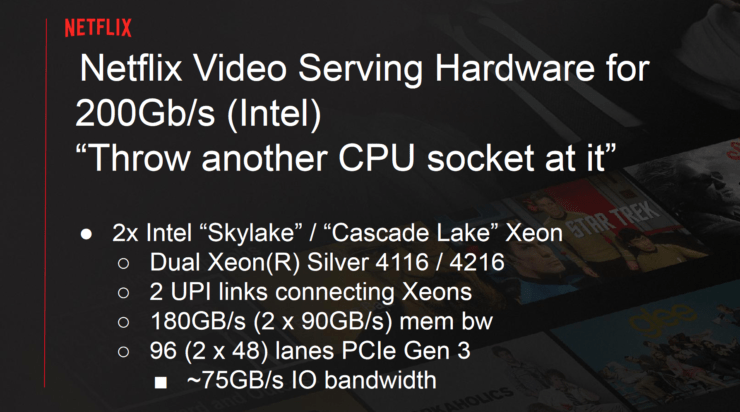
For the Intel option, they can go with a dual-Xeon configuration with 2x Intel Xeon Silver 4116/4216 processors. These would have a total of 180 GB/s memory bandwidth and 96 PCIe Gen3 lanes (for a total of 75 GB/s IO bandwidth). The dual Xeons would be connected by 2 UPI links.
Currently, an Intel Xeon Silver 4116 sells for around £800 at retail.
The AMD EPYC solution will likely use the EPYC 7502P and the company would have access to a memory bandwidth of 120-150 Gbps. This AMD setup would have access to128 lanes of PCIe Gen3 (Gen4 for the 7502P with the added advantage of memory bandwidth doubling to 200 GB/s).
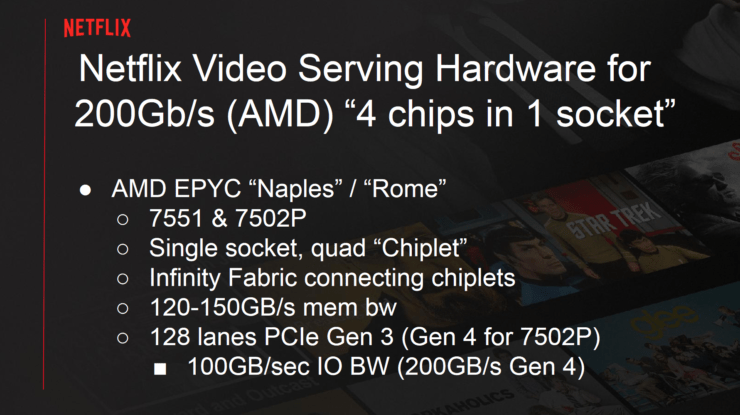
Currently, the EPYC 7502P sells for around £2200 at retail. Thought RRP prices will be very different than what Netflix pays.
The Xeon-based solution can achieve a maximum throughput of 191 Gbps while the EPYC configuration can reach a maximum throughput of 194 Gbps.
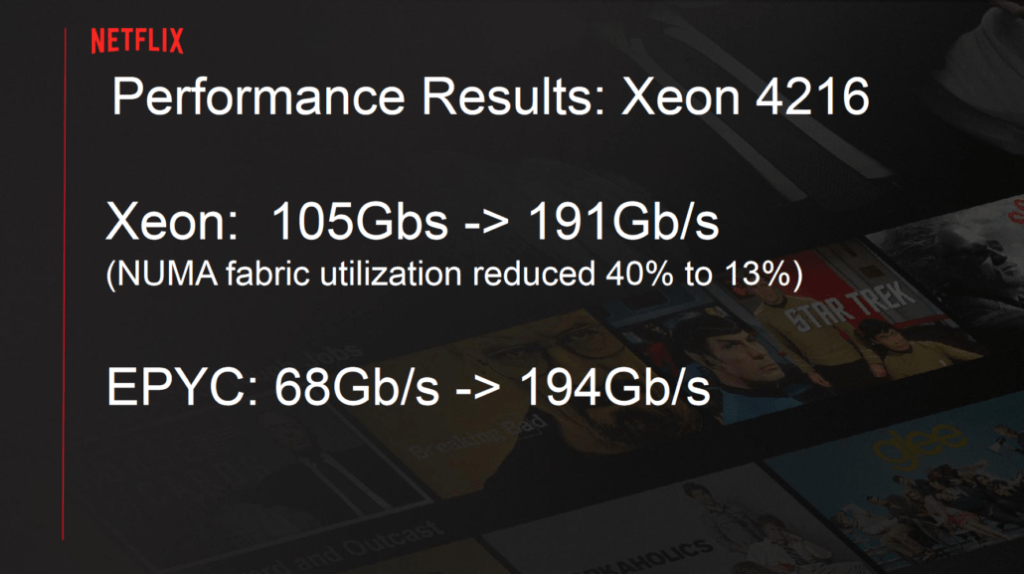
The end result is that EPYC has a slight performance advantage over Intel for the same cost of ownership, but AMD also has the advantage of shipping with PCIe 4 which edges it out further into the lead.
Whether or not Netflix make the move is completely unknown, it could be that they prefer to stick with what is known. It will also likely be dependent what sort of discount Netflix can secure, AMD will no doubt be very keen to win the contract, but similarily Intel won’t want to lose it.
I think the most interesting take away from this is that AMD have once again shown what a big u-turn a company can make. A few years ago they were nowhere in the server market, but now they are being considered by one of the biggest data companies in the world and their single-socket solution is superior to Intel’s dual-socket.
I am James, a UK-based tech enthusiast and the Editor and Owner of Mighty Gadget, which I’ve proudly run since 2007. Passionate about all things technology, my expertise spans from computers and networking to mobile, wearables, and smart home devices.
As a fitness fanatic who loves running and cycling, I also have a keen interest in fitness-related technology, and I take every opportunity to cover this niche on my blog. My diverse interests allow me to bring a unique perspective to tech blogging, merging lifestyle, fitness, and the latest tech trends.
In my academic pursuits, I earned a BSc in Information Systems Design from UCLAN, before advancing my learning with a Master’s Degree in Computing. This advanced study also included Cisco CCNA accreditation, further demonstrating my commitment to understanding and staying ahead of the technology curve.
I’m proud to share that Vuelio has consistently ranked Mighty Gadget as one of the top technology blogs in the UK. With my dedication to technology and drive to share my insights, I aim to continue providing my readers with engaging and informative content.


